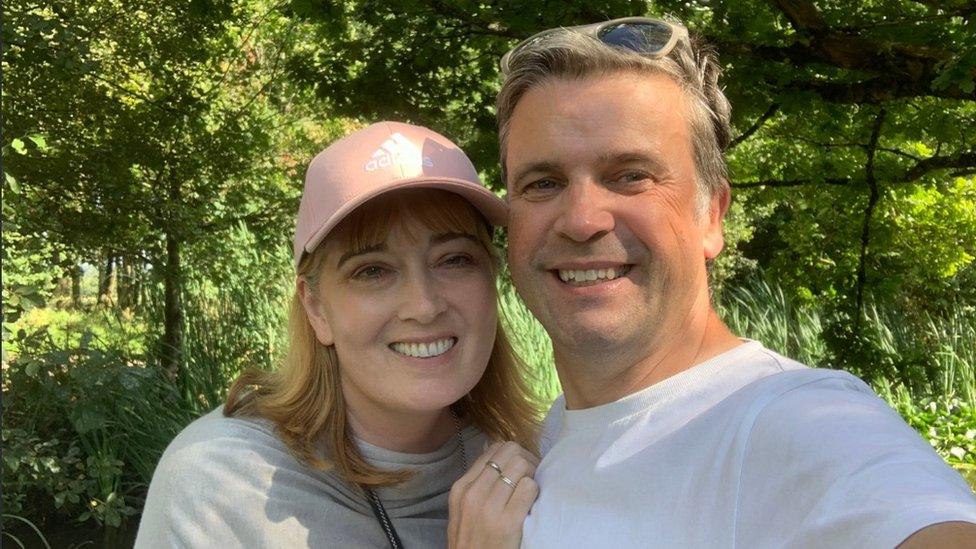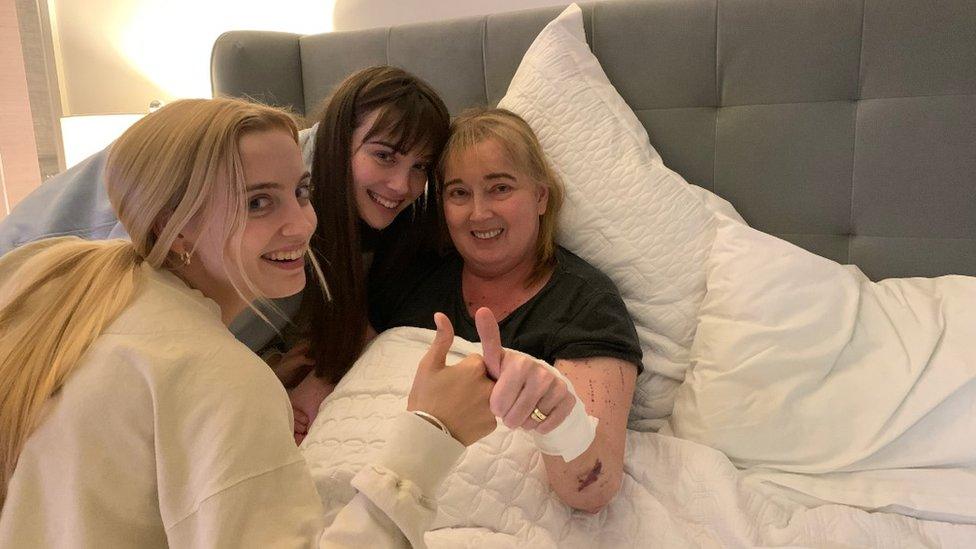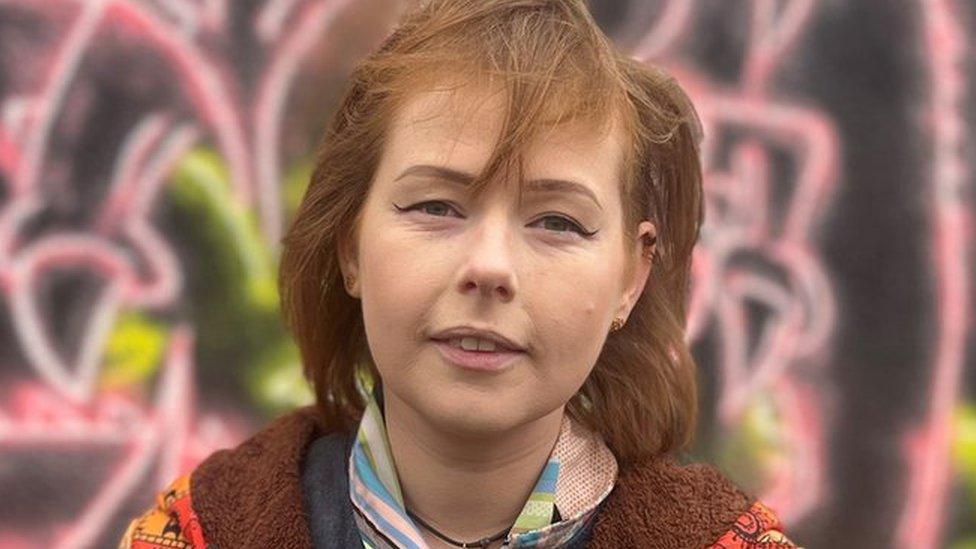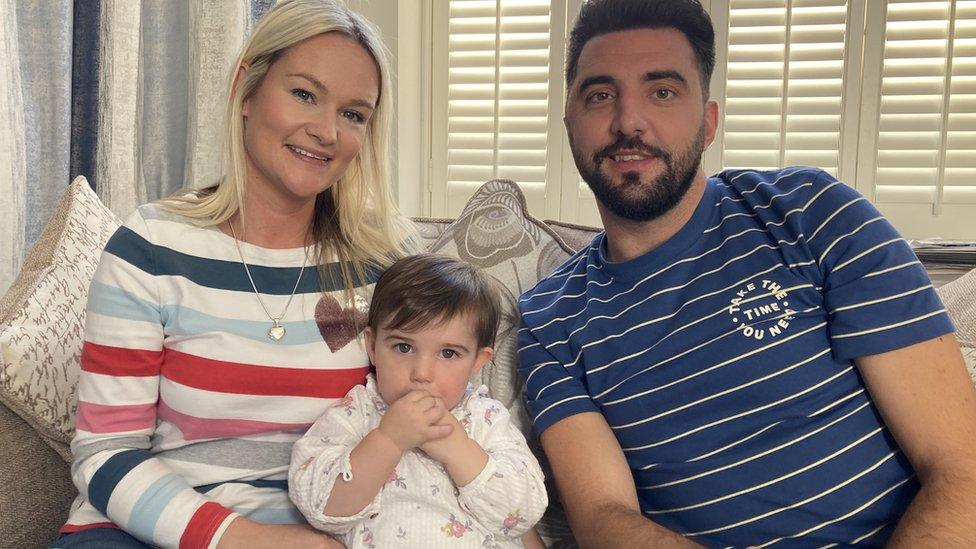Cannabis used by brain tumour patients, says Cardiff doctor
- Published

Julian Edwards would have loved more options being available to his wife Samantha
Patients with the most aggressive brain tumours have routinely asked whether cannabis can help, a cancer specialist has said.
Consultant clinical oncologist Jillian MacLean said many patients were using cannabis or CBD products "just hoping it may be helpful".
She is involved in studies at Cardiff's Velindre Cancer Centre.
It is part of the UK-wide Aristocrat trial, external, using an oral spray containing cannabinoids.
The average prognosis for those diagnosed with a glioblastoma, external - or a late stage brain tumour - is between 12 and 18 months, and treatment options are limited.
Family and friends of people who have died welcomed the work, saying how helpless and "cruel" the situation seemed.
Dr MacLean is assessing whether a cannabis-based drug, Sativex, can help for those patients with a recurring glioblastoma, alongside chemotherapy.
She said: "With this diagnosis, they don't feel they have anything to lose by trying it. We want to be able to test that and see if that's a helpful thing.
"If it turns out it is, then it's something that should be available for patients without them having to source things themselves."

Samantha - with her two daughters - had talked about Christmas and 2023, but died just before the festive period
The Aristocrat trial is being funded by the Brain Tumour Charity, external and led by a team at Leeds University.
It was described as "bitter-sweet" by Julian Edwards to know the first patients had been recruited at the centre where his wife, Samantha, was treated.
She died in December 2022, aged 53.
Mr Edwards, from Cowbridge, Vale of Glamorgan, said: "The brain tumour that Sam had developed quite quickly at the end. When you're given a range of outcomes as a prognosis, of course you latch onto the longest date - and we didn't get there.
"We were talking about life after Christmas and what 2023 looked like. But we never got there. She passed away 10 days before Christmas."
He said he would have "given his right arm" for his wife to have had a cancer that had better outcomes, but she "would be pleased that baby steps had been made".

Areesha (left) and Annabel at a gig in 2020 - less than a year before she was diagnosed
Areesha Evans raised thousands of pounds, knowing funding for research was vital.
She was diagnosed with a glioblastoma in April 2021 and died 10 months later, aged 35.
Her friend, Annabel Jones, from Taffs Well, Rhondda Cynon Taf, said by the time she was diagnosed she "barely had time" to come to terms with what was going on.
"I wanted to go banging on the doors of everyone that I could and say 'we need investment, we need research, we need something', because it was the most cruel thing I have ever seen," she said.
She described Areesha as a fit and healthy mother to a young daughter, which made the diagnosis harder to accept for friends and family.
The Aristocrat trial is one of the first studies to be largely crowd-funded, explained Dr MacLean.
"We've seen huge advances in treating other types of primary tumours and cancers over recent years, which as a neuro-oncologist can be quite frustrating, because we've certainly lagged behind," she added.
Dr MacLean said there are very various reasons for this, such as glioblastomas being rarer than other types of tumours.
But she added: "What we really need now is the funding and the structure for trials to be able to try those options."
Related topics
- Published3 May 2023

- Published30 October 2023

- Published23 October 2022
